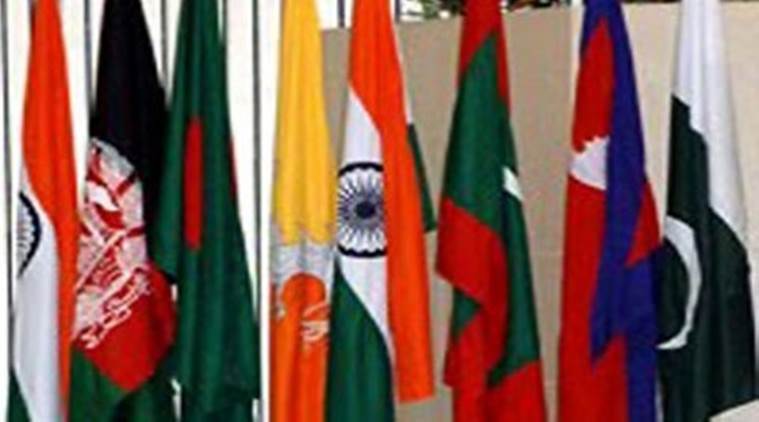World Without Solutions
How Western liberalism has failed South Asia.

In the 21st century, all global paradigms seem to be coming apart because humanity has lost its moorings. The liberal order faces challenges, an anti-mercantilist global economy is losing the glue that held it together, and democracy itself does not seem to be a useful device to hold nation-states together. Outside the Western world, religion is making a comeback to recreate what scholars in the West had named the Dark Age.
I would rate Pankaj Mishra as an extraordinary Indian scholar. In his book, From the Ruins of Empire: The Revolt against the West and the Remaking of Asia, he tried to understand the minds of great Asian leaders — Rabindranath Tagore, Mahatma Gandhi and Jawaharlal Nehru in India, Liang Qichao and Sun Yat-sen in China, Jamal al-Din al-Afghani and Abdurreshial Ibrahim in the Ottoman Empire. He describes these leaders as “outsiders” within the main anti-colonial tradition.
Mishra had tried to understand the fissures in the 21st century world in an earlier book, An End to Suffering: The Buddha in the World. Who else but the Buddha to understand the era of war and greed? Mishra highlighted aspects of the Buddha’s thinking that we had ignored. He also tried to understand his influence on modern politicians such as Mahatma Gandhi and Nelson Mandela. (We must bemoan the eclipse of Gandhi’s thought in today’s prosperous but violent India and admire Mishra for reminding his countrymen of what they had dumped by the wayside).
India also ignored Ashoka, its greatest Buddhist king, who didn’t write his name on his edicts, didn’t recognise caste, and told people never to denigrate the religion of others nor praise their own. India focused, instead, on “Westernisation”. In his Temptations of the West, Mishra looks at India’s “Western-style modernity” — radiating from Bollywood films and post-Nehruvian high-growth capitalism — readying itself for internal and external conflict.
All these motifs converge in Mishra’s crowning work, Age of Anger: A History of the Present (2017). He writes in the book’s preface: “I started thinking about this book in 2014 after Indian voters, including my own friends and relatives, elected Hindu supremacists to power, and Islamic State became a magnet for young men and women in Western democracies. I finished writing it during the week in 2016 in which Britain voted to leave the European Union. It went to the printers in the week that Donald Trump was elected president of the United States. Each of these earthquakes revealed faultlines that I felt had been barely noticed over the years, running through inner lives as well as nations, communities and families.”
All these motifs converge in Mishra’s crowning work, Age of Anger: A History of the Present (2017). He writes in the book’s preface: “I started thinking about this book in 2014 after Indian voters, including my own friends and relatives, elected Hindu supremacists to power, and Islamic State became a magnet for young men and women in Western democracies. I finished writing it during the week in 2016 in which Britain voted to leave the European Union. It went to the printers in the week that Donald Trump was elected president of the United States. Each of these earthquakes revealed faultlines that I felt had been barely noticed over the years, running through inner lives as well as nations, communities and families.”
Mishra unravels the moorings of the Enlightenment and the Age of Reason — as presided over by Voltaire. And, he also dwells on the genius, who debunked the Age of Reason — Jean-Jacques Rousseau. It was Rousseau, whom the soon-to-be-disenchanted Romantic poets deified. It is remarkable that in India, the Romantic poets like William Wordsworth were more influential than the Victorian poets. And Indians were not the only people inspired by the Romantic poets: “The Romantics seeded a whole tradition of Anglo-American criticism in the 19th century to which the conservative Dickens belongs as much as Thoreau, who famously asserted in his section on ‘Economy’ in Walden (1854) that ‘the mass of men lead lives of quiet desperation’. This largely moral critique of modernity was broadened by writers in countries playing catch-up with the Atlantic West. The Russians, in particular, stressed social facts: the ill-directed energy and posturing of political elites, and the loss of a sense of community and personal identity,” Mishra writes.
He rebukes scholars who praise prosperity under despots: “Huntington, aware of his devoted readers among Asian technocrats, hailed the Shah of Iran as the epitome of a ‘modernising monarch’. He claimed that Pakistan’s military dictator Ayub Khan came close, “more than any other political leader in a modernising country after World War Two”, to “filling the role of a Solon or Lycurgus, or “Great Legislator” of the Platonic or Rousseauian model’ (Ayub Khan was shortly thereafter forced out of power). Bernard Lewis returned from his first trip to Turkey in 1950 lionizing Atatürk and upholding the latter’s enlightened despotism as a great success and model for other Muslim countries.”
So, where have we landed in the 21st century? In a world of inequality of wealth, brawling people and nations with no solutions in sight. Mishra describes Islamist Pakistan and Hindu India as neighbours “driven by the narcissism of small differences”.










.png)




























No hay comentarios:
Publicar un comentario